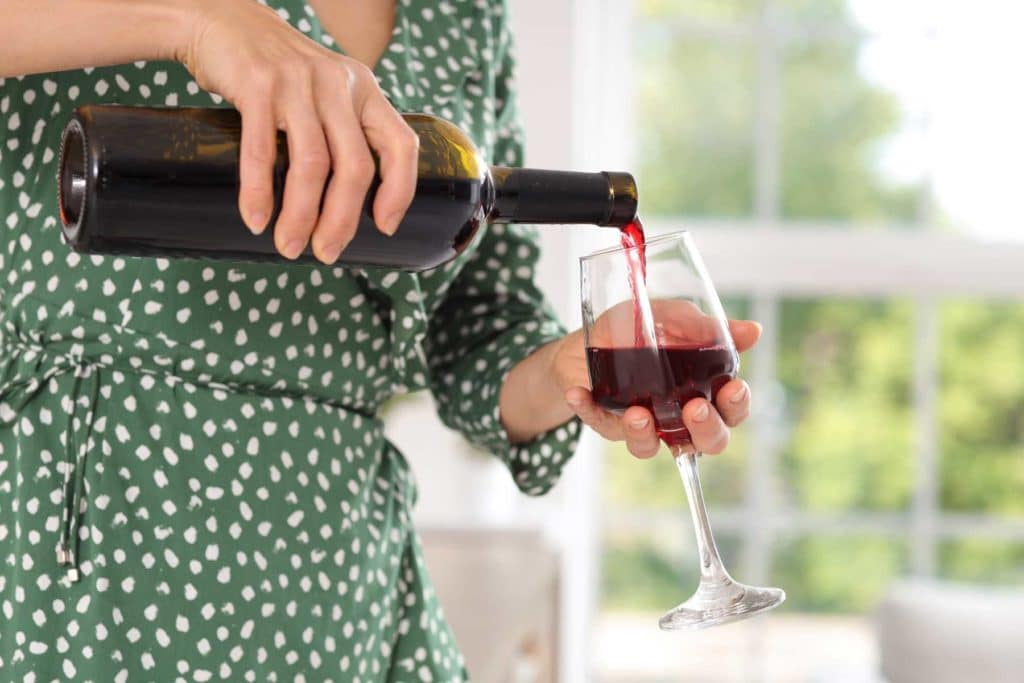
Our kids are always watching us. This is true when they are toddlers, and is perhaps more so when they are teenagers.
While we may stifle a laugh when a toddler repeats an expletive, it’s not as cute when our teens mimic our bad behavior. And teens are less likely to accept a “Do as I say, not as I do” attitude.
This is particularly true when it comes to alcohol. Teens may look like mini adults (after all, they sometimes tower over us), but they’re not yet grownups. Not only do teens already struggle with impulse control, but also, their brains are also more susceptible to the dangerous effects of alcohol consumption. While studies in recent years have had conflicting results about the impact of alcohol on the body, it has long been an accepted fact that consuming large quantities can be harmful or even deadly.
Alcohol and Driving: Never a Good Mix
When I realized my life as a parent of a teen involved being a chauffeur, I started to rethink my drinking habits. While I’m not one to overindulge often, I do enjoy the occasional glass of wine (or two) with dinner. But I found that my constantly changing metabolism meant I couldn’t always predict the effect it would have on my body. While it was unlikely that one glass with a meal would impact my ability to drive, it wasn’t a chance I was willing to take with my children and their friends.
I decided to take this a step further and use it as a teaching moment. When I knew I was on carpool duty (or even thought I might get a call for a ride) I made a point of saying I was going to skip the wine, because I was driving soon. This was in sync with the lessons I was trying to convey to my children—that drinking and driving NEVER go together. For me, it felt wrong to make excuses: that I was older, had more experience, knew my limits, or any other plausible reason one could think of to justify what I knew would be a poor choice. Drinking alcohol meant not driving; driving, meant not drinking alcohol. (I’ll admit, this was not much fun at picnics where everyone else was drinking, but my kids got the message.)
6 Ways to Practice Responsible Drinking in front of Your Teens
Setting an example when it comes to alcohol goes beyond just a “no drinking and driving” rule though. Here are 6 ways parents can show that irresponsible drinking isn’t happening in their household.
1. Establish and enforce rules.
Teens are going to test limits. And making something forbidden often makes it more appealing. Most parents won’t really be surprised to hear that their teen has had a drink, but that doesn’t make it okay or mean that you should look the other way. Ignoring or allowing teen drinking may lead to earlier and more frequent alcohol use or even alcoholism. A recent study indicates that teens whose parents allowed them to drink were more likely to escalate (i.e. going from having one drink to five or more at a sitting—which is considered binge drinking—and repeating this process several times a year).
Related: A Psychotherapist Shares 6 Rules She Follows When Parenting Teens
2. Consider the impact of joking about alcohol.
We’ve all heard the jokes that normalize drinking: “It’s five o’clock somewhere.” “It’s wine o’clock.” But alcoholism is a real problem and joking about excessive alcohol use normalizes the behavior. Some people take these phrases to heart, considering them a stamp of approval or legitimate reason to drink. But abusing alcohol leads not only to an increased risk of injury or disease, but also contributes to domestic violence and sexual assault. The Annals of Internal Medicine goes so far as to say that alcohol-related deaths “are partly to blame for declining life expectancy in the United States.”
Obviously alcohol-related jokes don’t cause addiction, but if the possibility for alcohol abuse is already there, normalizing it or joking about it may cause more harm than parents realize.
3. Walk the talk.
If you choose to drink, do so responsibly. The Dietary Guidelines for Americans recommends that adults limit themselves to 2 drinks or less per day for men and 1 drink per day or less for women. (A drink is defined as 12 ounces of beer, 5 ounces of wine, or 1.5 ounces of distilled spirits.) Getting drunk in front of your teens is going to have an impact, even if you’re in the safety of your own home. Also, model responsible behavior: If you’re going to tell your kids to not drink and drive, you do the same. Arrange to have a designated driver or switch to soft drinks several hours before you need to get behind the wheel.
Also, keep in mind that your frequency of drinking matters too. One study showed that teens were four times more likely to participate in underage drinking if their parents drink frequently than those whose parents did not drink or only drank alcoholic beverages occasionally. This same study reported that, over a four-year period, more than 4,000 people under age 21 died because of alcohol use.
4. Be wary of “mommy wine culture.”
While it’s meant to be cute, oversized glasses that say “Mom Needs Wine” send a message to our kids, as does responding to a tough day wrangling children with, “I need a drink.” We never want our kids to believe that they literally “drive us to drink.” Most schools teach about the negative health impacts of alcohol—what message does it send our kids if we turn to alcohol as a coping mechanism?
If you’re going to have a glass of wine or a beer as you wind down your day, avoid verbally attaching it to your job as a parent, because your kids are listening.
5. Plan events around activities, not alcohol.
Getting together with friends and family is important, whether to celebrate special occasions or just to enjoy each other’s’ company. But keep the focus on the fun. Whether alcohol will be served or not, plan activities that all guests can participate in. Active outdoor adventures can be more enjoyable (and safer) when no alcohol is involved. Game or movie nights, cooking together or completing art projects are other fun options.
Related: 15 Of The Best Movies On Netflix for Teen Boys
6. Focus on alcohol-free options.
When hosting events, be conscious about your beverage options. If you are serving fancy cocktails, make sure fancy mocktails are on the menu as well. Avoid referring to these options as “kids drinks.” This not only makes them less appealing to teens, it may also cause discomfort to guest who may choose to not imbibe for any number of reasons.
They likely won’t admit it, but study after study reveals that teenagers care what their parents think. They listen to what we have to say, watch what we do, and internalize. It’s important that we send them the right message about drinking responsibly.
If you’re looking for a great resource to help you navigate these tough years of parenthood, we recommend Loving Hard When They’re Hard to Love: Essays on Raising Teens in Today’s Complex, Chaotic World by Whitney Fleming. This book covers the challenging parts of parenting adolescents, such as managing big emotions, navigating school and social issues, and learning to let go, but also the beautiful things simultaneously occurring, like watching them find their passions, take charge of their newfound independence, and move on to the next chapter.

Raising teenagers is a tough job, but you’re not alone. These posts might help:
This Is Why Teen Girls Are So Mean to Their Mothers
The Best Netflix Shows for Tweens and Teens Families Can Enjoy Together
Snapchat—Why Kids Love It And What Parents Need to Know
10 Commons Battles that Will Destroy the Relationship with Your Teen
*This post may contain affiliate links where we earn a small commission for purchases made from our site.





Leave a Comment